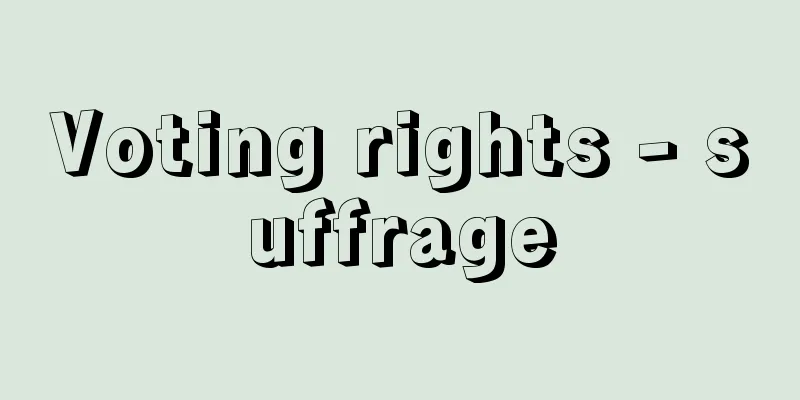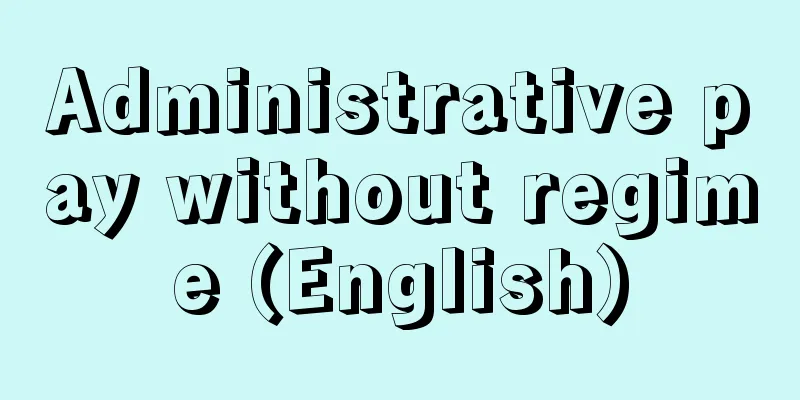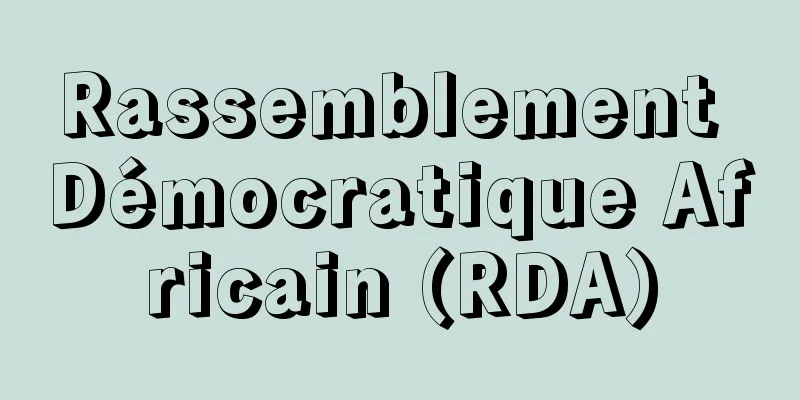Voting rights - suffrage

|
Generally speaking, it is the right to select public officials. The right to vote is a right exercised by the people as the sovereign, but in this context, the exercise of this right must naturally include the right to dismiss public officials. This is probably why Article 15 of the Constitution of Japan, which provides for the guarantee of universal suffrage, states that "it is the inherent right of the people to select and dismiss public officials." Here, public officials do not refer to all public officials in the central and local government agencies, but only to those who the people can select, such as Diet members, local assembly members, governors, and mayors. With regard to dismissal, the right to popular referendum on Supreme Court judges (Article 79 of the Constitution), requests for the dissolution of local assemblies (Articles 13 and 76 of the Local Autonomy Law), and requests for the dismissal of assembly members, heads, and other officers (Articles 13, 81, and 86 of the Local Autonomy Law) are permitted. The right to vote is the right of citizens to participate in politics, which is the most representative of suffrage rights, but other rights related to suffrage include national referendums on constitutional amendments (Article 96 of the Constitution), local referendums on special laws that apply only to one local government (Article 95 of the Constitution), the right to request the establishment, amendment, or repeal of local government ordinances (Articles 12 and 74 of the Local Autonomy Law), and the right to request an audit of administrative affairs (Articles 12 and 75 of the Local Autonomy Law). These political rights are granted to those who have the right to vote. The right to be elected as a public servant is called the right to be elected, and the age qualification is usually higher than that for the right to vote. For example, the minimum age for members of the House of Representatives, local assembly members, and mayors of cities, towns, and villages is 25 years old, while the minimum age for members of the House of Councillors and governors is 30 years old. Details regarding voting rights are stipulated in Article 9 of the Public Offices Election Act as follows: (1) Japanese nationals who have attained the age of 20 years or more shall have the right to vote for members of the House of Representatives and the House of Councillors. (2) Any Japanese national who has attained the age of 20 years or more and has had his or her domicile within a city, town or village for three consecutive months or more shall be entitled to vote for members of the assembly and mayor of the local public entity to which he or she belongs. However, if a person who has the right to vote for local assembly members and mayors moves from one city, town or village to another city, town or village within the same prefecture, he or she will still have the right to vote for prefectural assembly members and mayors even if he or she has not resided in that city, town or village for three months (Article 9, Paragraph 3). Regarding the election of Diet members, even if you have just moved, you can vote in the original city, town, or village where you are listed on the voter register. Regarding those who do not have the right to vote or the right to be elected, Article 11, Paragraph 1 of the Public Offices Election Law stipulates the following: (1) Adult wards [Hiroshi Tanaka] The Act to Partially Amend the Public Offices Election Act (Act No. 43 of 2015), enacted in June 2015, changed the voting age for public office elections from 20 years old to 18 years old. The revised law went into effect on June 19, 2016. [Editorial Department] [Reference items] | | | | | | | |Source: Shogakukan Encyclopedia Nipponica About Encyclopedia Nipponica Information | Legend |
|
一般には公務員を選定できる権利。選挙権は主権者たる国民が行使する権利であるが、それとの関連でいえばこの権利の行使には当然に公務員を罷免する権利も含まれなければならない。普通選挙の保障を規定した日本国憲法第15条で「公務員を選定し、及びこれを罷免することは、国民固有の権利である」と述べているのはそのためであろう。ここで公務員というのは中央・地方の諸官庁の公務員全体をさすものではなく、国民は国会議員、地方議会の議員、知事、市町村長などを選定できるにとどまる。罷免に関しては、最高裁判所裁判官の国民審査(憲法79条)、地方議会の解散請求(地方自治法13条・76条)や議員、長・役員などの解職請求(同法13条・81条・86条)が認められている。 選挙権は国民が政治に参加する権利つまり参政権のうちでもっとも代表的なものであるが、参政権に関するものとしては、憲法改正に関する国民投票(憲法96条)、一つの地方公共団体のみに適用される特別法に関する住民投票(憲法95条)、地方公共団体における条例の制定・改廃請求権(地方自治法12条・74条)、事務の監査請求権(同法12条・75条)がある。これらの政治的権利は選挙権をもつ者に認められている。公務員に選挙されうる権利は被選挙権とよばれ、選挙権の場合より年齢資格が高いのが普通である。たとえば衆議院議員、地方議会の議員、市町村長の場合は25歳以上、参議院議員、知事の場合は30歳以上である。 選挙権に関する詳細については「公職選挙法」第9条に次のように定められている。 (1)日本国民で年齢満20年以上の者は、衆議院議員及び参議院議員の選挙権を有する。 (2)日本国民たる年齢満20年以上の者で引き続き3か月以上市町村の区域内に住所を有する者は、その属する地方公共団体の議会の議員及び長の選挙権を有する。 ところで、地方議会の議員及び長の選挙権を有する者が、ある市町村から引き続き同一都道府県内のほかの市町村に住所を移した場合は、その市町村内で3か月にならなくとも、当該都道府県の議会の議員及び長の選挙権を有する(9条3項)。 国会議員の選挙については、移転した直後であっても、選挙人名簿に載っている元の市町村で投票できる。選挙権および被選挙権を有しない者については「公職選挙法」第11条1項において次のように定めている。 (1)成年被後見人 [田中 浩] 2015年(平成27)6月に成立した「公職選挙法等の一部を改正する法律」(平成27年法律第43号)により、公職の選挙の選挙権を有する者の年齢について、満20年以上から満18年以上に改められた。改正法の施行は2016年6月19日。 [編集部] [参照項目] | | | | | | | |出典 小学館 日本大百科全書(ニッポニカ)日本大百科全書(ニッポニカ)について 情報 | 凡例 |
<<: Public election campaign - Senkyokouei
Recommend
Obe-sho
This manor was located near Ono City, Hyogo Prefe...
Chemical Energy Workers' Union
...The official name is the Japan Chemical, Servi...
Kotanski, W.
…After Poland gained independence in 1919, a Japa...
Book of Mormon
…Founder of the Mormon Church (officially known a...
Lw antigen - Eldabry antigen
...This antibody was determined to be the same as...
Nephrotic syndrome
…In the past, it referred to kidney disease accom...
Ingold, CK - Ingold
…The study of structures and properties determine...
Dichromic acid - Nichromesan (English spelling)
It is also known as dichromate. Its chemical formu...
Hepatoblastoma
It is the most common malignant tumor among child...
Genkuro Kawase
...The effectiveness of gymnastics was introduced...
The Oxford English Dictionary; OED
An English dictionary with a long history and auth...
"The Story of the Thousand Days of Suicide at Osaka Temple"
...Kakusho (Sukeroku Agemaki). The Osaka Sennichi...
Medal - Award
A national honor. A badge of honor bestowed by th...
Tropical - Nettai
Geographically, it refers to the area between the...
Administrative justice - gyosei shihou
In the 19th century, the German states began mode...









